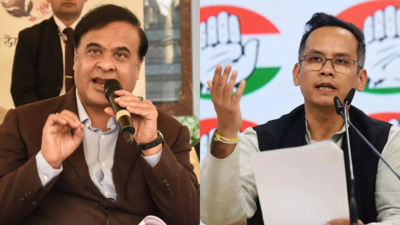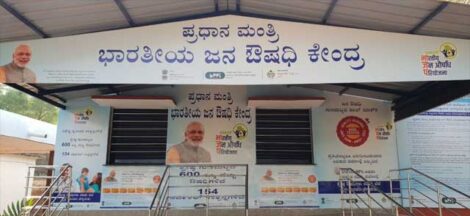Chief Minister Himanta Biswa Sarma has invited Congress state president Gaurav Gogoi to provide concrete evidence linking Hindus to the communal disturbances in Dhubri, emphatically rejecting what he described as groundless accusations and calling them part of Congress’s enduring “appeasement politics.”
Addressing reporters in North Lakhimpur, Sarma said Gogoi’s allegations against the Hindu community amounted to a serious insult. The Chief Minister asserted that unless Gogoi could present verifiable proof, his claims would not be taken seriously. Sarma made clear that his administration would not be swayed by political rhetoric lacking factual basis.
Sarma’s remarks come amid the backdrop of escalating tensions in Dhubri, where objects suspected to be beef were reportedly placed near religious sites following Eid‑ul‑Zuha on 7 June. Security forces have since responded with curfews and a shoot‑on‑sight directive after dusk. According to state authorities, more than 40 individuals have been detained so far.
In Parliament earlier this month, Gogoi criticised the state government’s handling of the situation, suggesting failures in intelligence and hinting at religious bias. He accused policies allowing officials to bypass standard legal safeguards of disproportionately targeting one community. The Congress leader also alleged infiltration by RSS elements into Assam’s villages ahead of next year’s Assembly election, asserting that the unrest was being politically exploited.
Sarma dismissed these accusations as a continuation of Congress’s long-standing tactics. He accused the party of deploying “appeasement” strategies to polarise and divide for electoral gain. “They are playing identity politics again,” he told journalists. “Without proof, it’s just political theatre.”
In reinforcing his position, the Chief Minister drew parallels to what he described as “beef weaponisation”—claims that meat was being used provocatively in religiously sensitive areas to stoke communal tensions. He had previously warned that those implicated in such acts would face stringent legal consequences.
Officials in Dhubri have defended the shoot‑on‑sight order, arguing it was essential to restore and maintain peace. Authorities have stressed that the measure targets only those found committing violent or disruptive acts after evening curfew hours. Police have deployed tear gas, imposed prohibitory orders, and shut markets to prevent escalation.
Gogoi’s call for accountability intensified after the Supreme Court directed a probe into 171 alleged police encounters during the current government’s term. The Congress welcomed the court’s intervention as a rebuke of what it termed unconstitutional policing tactics under Sarma’s administration.
Sarma countered by pointing to the arrests in Dhubri as evidence of his government’s proactive stance against unrest. “Our zero‑tolerance policy is working,” he said, claiming that the actions were aimed squarely at safeguarding communal harmony and preventing any political escalation.
The CM also addressed Gogoi’s assertion of intelligence failures, stating that his government is enhancing its monitoring systems. He disclosed that five people were arrested in Goalpara for allegedly attempting to incite violence, and the police are reviewing community and social media activity to avert further incidents.
Political analysts suggest that Sarma’s call for proof strategicises both a defence of the state’s law‑and‑order approach and an attempt to portray Congress as relying on unfounded allegations. At the same time, the Congress faces the challenge of documenting communal unrest in a manner that withstands legal and judicial scrutiny.
Behind the public exchanges, both sides are amplifying their narrative ahead of critical local and assembly polls due next year. Sarma appears to be reinforcing law-and-order credentials while seeking to undercut Congress’s messaging. Conversely, Gogoi aims to highlight alleged state bias and police overreach, feeding into broader debates on minority rights and democratic liberties.
With both sides now publicly engaging in a contest over evidence and narrative control, the focus will likely shift to whether Gogoi presents verifiable proof of targeting Hindus or whether Sarma’s administration continues to emphasise security measures and legal procedures.




 CEO’s Crisis Response Echoes American Counterpart
CEO’s Crisis Response Echoes American Counterpart 